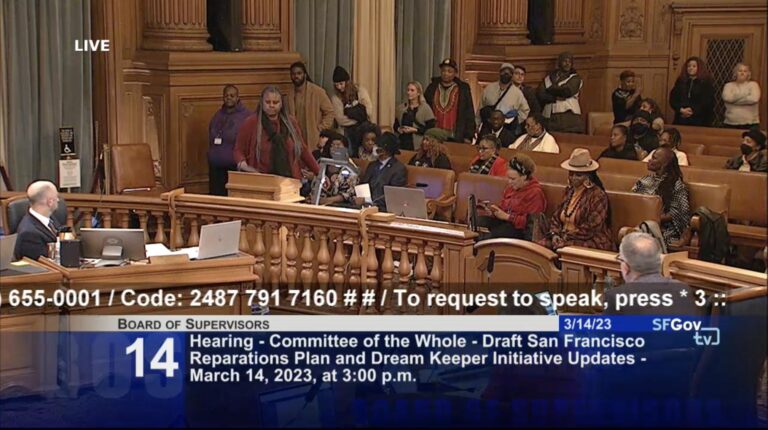San Francisco Hearing Examines the Termination of Temporary Protected Status and Its Effects on Immigrant Communities
Examining the Consequences of Ending Temporary Protected Status for Immigrants
This week, a pivotal hearing took place in San Francisco to scrutinize the Trump administrationŌĆÖs controversial decision to revoke Temporary Protected Status (TPS) for thousands of immigrants from countries grappling with ongoing crises. The session convened community advocates, legal professionals, and immigrants directly impacted by the policy change to discuss the far-reaching social and economic repercussions. Participants highlighted how the termination threatens not only deportation but also disrupts access to essential services such as healthcare, education, and employment opportunities for these communities.
Major concerns raised during the hearing included:
- The imminent risk of family separations, especially for TPS holders with U.S.-born children.
- Rising poverty levels within immigrant populations due to the loss of work authorization.
- The strain on local governments tasked with managing the fallout from TPS termination.
- Urgent calls for legislative reforms to establish more permanent protections for vulnerable immigrants.
| Immigrant Group | Approximate Number of TPS Beneficiaries | Primary Issues |
|---|---|---|
| El Salvadoran Community | 190,000+ | Threat of deportation; family disruption |
| Haitian Community | 60,000+ | Economic hardship; limited healthcare access |
| Honduran Community | 57,000+ | Interruption in education; job insecurity |
| Nicaraguan Community | 5,300+ | Displacement concerns; legal ambiguity |
Legal Perspectives on the AdministrationŌĆÖs Rationale and Broader Policy Effects
The legal community remains divided over the Trump administrationŌĆÖs justification for ending TPS protections. Supporters argue that improvements in political stability and economic conditions in the affected countries warrant the cessation of temporary protections. Conversely, opponents highlight persistent humanitarian crisesŌĆöincluding violence, natural disasters, and povertyŌĆöthat continue to necessitate TPS. The debate underscores the contentious interpretation of the term ŌĆ£temporaryŌĆØ and its significant consequences for immigrant populations.
- Proponents: Emphasize enhanced safety in home countries and the importance of enforcing immigration laws.
- Critics: Point to ongoing threats and the moral imperative to safeguard vulnerable groups.
- Moderate voices: Advocate for a balanced approach that respects legal frameworks while upholding human rights.
| Issue | SupportersŌĆÖ Position | OpponentsŌĆÖ Position |
|---|---|---|
| Meaning of ŌĆ£TemporaryŌĆØ | Conditions have improved sufficiently | Ongoing dangers persist |
| Effect on Immigrants | Supports lawful immigration enforcement | Jeopardizes lives and livelihoods |
| International Responsibilities | Respects national sovereignty | Challenges human rights commitments |
Personal Accounts Reveal the Human Toll and Uncertainty Faced by TPS Recipients
TPS beneficiaries shared heartfelt testimonies during the hearing, expressing profound fears about losing their legal protections. Many recounted the precariousness of their situations, fearing deportation and the dismantling of the stable lives they have painstakingly built in the United States. These narratives ranged from individuals who fled natural disasters decades ago to those who have since established careers and raised families in American communities.
The testimonies illuminated the often-overlooked human dimension behind policy debates. Advocates stressed the cascading effects on both the immigrants and the local economies that depend on their labor and participation. Key humanitarian concerns included:
- Heightened risk of family separations due to sudden deportations.
- Loss of access to essential healthcare and education for immigrants and their dependents.
- Increased mental health challenges stemming from uncertainty and shifting immigration policies.
- Economic instability impacting local businesses reliant on immigrant workers.
| Country of Origin | Estimated Number Affected | Primary Humanitarian Issues |
|---|---|---|
| El Salvador | Over 200,000 | Family separation, economic insecurity |
| Honduras | 57,000+ | Healthcare access, educational disruption |
| Nicaragua | 2,500+ | Community instability, mental health concerns |
Calls for Legislative Reform to Secure Long-Term Protections for TPS Holders
During the San Francisco hearing, advocates and legal authorities underscored the pressing need for Congress to enact laws that protect immigrants facing the termination of Temporary Protected Status. They cautioned that an abrupt end to TPS could trigger severe humanitarian crises, including the forced displacement of families who have resided in the U.S. for many years. Speakers urged comprehensive legislative reforms that not only prolong TPS but also establish clear pathways to permanent residency, fostering stability and integration for these communities.
Highlighted recommendations included:
- Immediate renewal of TPS designations for affected nations.
- Creation of legal avenues for TPS recipients to obtain permanent resident status.
- Expanded support services to assist immigrants at risk of deportation.
- Partnerships with local governments to minimize disruptions in education, employment, and healthcare systems.
| Recommendation | Objective | Expected Outcome |
|---|---|---|
| Extend TPS | Prevent deportations | Preserve family unity |
| Pathway to Permanent Residency | Provide legal certainty | Enhance community integration |
| Support Services | Increase resource access | Reduce vulnerability |
| Local Government Collaboration | Strengthen community resilience | Maintain essential social services |
Looking Ahead: The Uncertain Future of Temporary Protected Status
As the San Francisco hearing progresses, the fate of Temporary Protected Status for thousands of immigrants remains in flux. Advocates, policymakers, and legal experts continue to debate the ramifications of the Trump administrationŌĆÖs decision, emphasizing both the human impact and legal complexities involved. The resolution of this case will not only affect those currently shielded by TPS but may also influence the trajectory of U.S. immigration policy in the coming years. Ongoing coverage will track these developments closely, providing updates on this critical issue.




